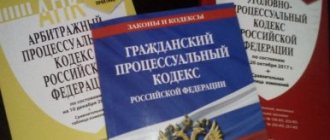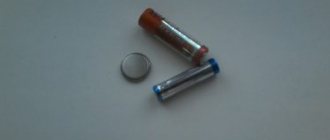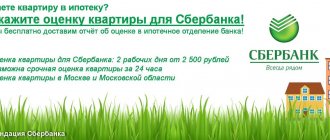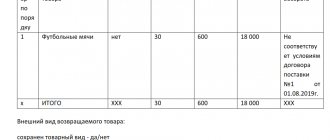List of goods that cannot be returned in 2021
In the previous list, approved by Resolution No. 55, the list of high-quality, technically complex goods was detailed. Clause 11 of Resolution No. 55 included such goods for household purposes: metal and woodworking machines, electrical appliances, telephones, watches, electronic toys, radio equipment, computer equipment and other products. At the same time, a warranty period of any duration should apply to these products.
If in practice a dispute arose about classifying a particular product as non-returnable for the purpose of applying a ban on its return, the courts turned to the All-Russian Classifier of Products by Type of Economic Activity OK 034-2014 (approved by Order of Rosstandart dated January 31, 2014 No. 14-st). As an example, we can cite the Ruling of the Supreme Court of the Russian Federation dated March 27, 2018 No. 78-KG17-102. In this dispute, the lower courts came to the conclusion that the tablet computer, although it belongs to a technically complex product, is not included in the list of non-returnable goods. Therefore, it is possible to return working tablets back to the store due to the wrong color. The Supreme Court did not agree with this position, citing OK 034-2014 (CPE 2008). The highest judicial body indicated that the list of non-returnable goods included computer equipment, and in the classifier in section 26, dedicated to computing equipment, tablets were listed under the code 26.20.11. Therefore, the tablet is considered a computing device and cannot be returned.
With the entry into force of the new list of non-returnable goods approved by Resolution No. 2463, the detailing has been cancelled. Now non-returnable goods include all technically complex household goods that have a one-year warranty. Thus, the return of devices with a warranty of less than a year has become possible, which is beneficial to consumers. But on the other hand, it has become impossible to return all, without exception, high-quality, technically complex household goods with a guarantee of one year.
In this regard, it is impossible to mention another problem that may arise in practice. The regulations do not define the concept of technically complex household goods. At the same time, Resolution of the Cabinet of Ministers of the Russian Federation dated November 10, 2011 No. 924 approved a general list of technically complex goods. However, its provisions cannot be used to determine the presence or absence of the right to return a particular high-quality technically complex household product.
The Metropolitan Department of Rospotrebnadzor, in a letter dated December 5, 2017 No. 02-19/01-01559-02, explained that the general list of technically complex goods approved by Resolution No. 924 of November 10, 2011, and the list of non-returnable household technically complex goods from a special list are used for different goals.
The list of non-returnable goods, previously given in Resolution No. 55, and now in Resolution No. 2463, was approved for the purpose of implementing Art. 25 of Law No. 2300-1 and concerns only the exchange of goods of good quality. And the general list of technically complex products given in Resolution No. 924 is used in pursuance of paragraph 1 of Art. 18 of Law No. 2300-1 regarding the right to return or replace technically complex goods with defects.
Thus, it must be taken into account that in order to return complex goods of proper quality, the list approved by Resolution No. 924 does not apply.
What deadlines are provided for satisfying consumer requirements?
Depending on the buyer’s requirements, the seller has the following deadlines within which he is obliged to respond to a citizen’s appeal - Art. 20, , 22 STD:
- Immediately - to eliminate a defect in the goods, when the deadline for fulfilling such a requirement is not fixed in writing by the parties.
- 3 days - to provide a citizen with a similar product while the purchase is being repaired, for a refund for a quality purchase.
- 7 days - to replace a defective purchase (without quality control).
- 10 days - to satisfy the request for a reduction in the purchase price, for reimbursement of costs for eliminating defects, for a refund of money for the product, for damages.
- 20 days - to replace a defective item (with additional quality control).
- Month - replacement of a low-quality purchase if the product required for replacement is not on sale.
- No more than 45 days to eliminate a product defect (subject to a written agreement).
Cotton hygiene products
What else cannot be taken to the store, but can be successfully used to maintain personal hygiene? For example, cotton products.
Such personal hygiene products usually include:
- cotton wool;
- cotton pads;
- tampons;
- cotton buds;
- cotton balls.
There is nothing difficult to remember. In real life, no one returns cotton wool products intended for hygiene. And he doesn't even try to do it. After all, it is almost impossible to prove the inadequate quality of such products.
What to do if the seller refuses to satisfy the buyer's demands
Citizens can defend their rights in court.
Sometimes sellers refuse buyers to exchange/replace goods or return money, unreasonably citing the fact that the product is on one of the lists. In this case, the citizen has the right:
- Get a free consultation from a public organization for the protection of consumer rights.
- Write a claim addressed to the seller.
- Contact Rospotrebnadzor.
- Go to court.
In this case, the buyer may not be limited to choosing only one action from the above list.
See also:
Where to complain to a consumer if rights are violated in 2021
How to write a claim for a refund in 2021 - step-by-step instructions + sample
How to write a statement on consumer protection in 2021 - step-by-step instructions + sample
Intimate hygiene
Even all the previously listed products cannot generally describe all hygiene products that cannot be exchanged under any circumstances. Therefore, we will continue to study one or another of its classes.
Next in line are intimate hygiene products. They, oddly enough, cannot be exchanged or returned in Russia.
What is included in this list? Eg:
- liquid soap for intimate areas;
- creams;
- depilatories;
- gels.
All this can be found on the shelves of supermarkets and cosmetics stores. Some products are displayed in pharmacies. Regardless of where the product was purchased, it cannot be returned. This is the law.
Children's hygiene
The list of personal care products that cannot be returned or exchanged generally looks impressive. Especially if you don’t classify such products.
There are products that are necessary for children's hygiene. They also cannot be returned or exchanged. This is what the current legislation of the Russian Federation says.
Children's hygiene products include:
- foam;
- shampoos;
- powders;
- diapers;
- diapers;
- creams;
- oils;
- milk
This is by no means a complete list. As a rule, children's hygiene is supported by the same products as adults. The composition of the products changes only for children. It's more natural.
For men
The list of personal care products that cannot be returned or exchanged includes separate products for men and women.
Let's start with the first ones. Men maintain hygiene by:
- special soap;
- shaving foam;
- tonics;
- aftershave gels.
These are the most common products you can come across. Manufacturers are now actively introducing men's shampoos and shower gels. However, they will not be returned to stores. Is this legal? Quite.
For mouth and teeth
Personal care products that cannot be returned or exchanged are varied. The next fairly large category is oral and dental care products.
This can include:
- pastes;
- dentifrice;
- dental floss;
- rinse aids;
- toothbrushes;
- toothpicks.
Nothing difficult or unclear. Often people do not even think about returning or exchanging the listed products. The exception is cases in which a person bought a low-quality product. Let's say it's expired.
When the list doesn't work
Violation of the buyer's right to reliable information about the purchase, which influenced the choice, is grounds for returning any item to the store.
Sellers must disclose:
- Name;
- manufacturer contacts;
- for compliance with technical regulations;
- consumer properties (energy efficiency);
- application;
- warranty, service life, expiration date;
- price;
- defects, facts of use of the item or elimination of defects.
Attention. There must be a cause-and-effect relationship between the information provided and the purchase choice.
Important information when selling products from the List:
- Clothes, shoes. An external inspection and measurement is carried out. The purchase must have packaging.
- Complex technical device. The serviceability, completeness, technical passport, and operating instructions are checked.
- Cosmetics. Information is provided on the properties and characteristics of cosmetic preparations. When checking the contents, the top cellophane wrapper is unsealed.
- Transport. They give you complete accessories, a service book and a vehicle title. The book indicates pre-sale preparation. The sales receipt contains information about the brand and unit numbers.
- Jewelry. The presence of a stamp, imprint, label and certificate is established. The item may be weighed. The receipt contains data: sample, article number, quality of the stone.
- Medicines and medicines. When selling medications without a prescription, the pharmacy provides information about state registration, medical purpose, use and restrictions.
- Vegetation. Animals. The seller is obliged to explain the peculiarities of the species content, and in relation to wild specimens - to provide permitting documentation.
- Chemicals for everyday life and agronomy. A technical certificate on ingredients and storage conditions is required.
- Weapon. Ammo. The trade representative introduces the device, the process of returning for recycling and hands over the components, documents, a signed receipt indicating the brand, number, type, information about precious metals, stones, control shootings, and fills out the purchaser’s permit for the weapon.
- Construction materials. Documents characterizing the product are drawn up, with a list of components and assembly tools.
- Furniture. The seller issues a certificate about the purpose of the furniture and the materials from which it is made. The sales receipt indicates the article number, number of components, accessories, price for the entire product and for each item.
- Non-periodical printing. Provided for informational purposes only.
- Previously used products. It is warned about the fact that it was previously used, about the degree of loss of consumer qualities, about sanitary measures. The requirements for payment and product documents apply the same as for new products of this class.
- Product markdowns are set for any group of products. Reducing costs and discounts can be a marketing maneuver. A price reduction due to assortment defects obliges the seller to inform purchasers about this in writing.
Important! The absence of the above information is a significant violation of the rights of buyers, which makes it possible not to apply the list approving non-returnable items.
Basic classification of personal care products
In total, the following product classes are distinguished:
- hair care;
- for mouth and teeth;
- baby supplies;
- men's hygiene products;
- paper products;
- cotton hygiene products;
- for intimate hygiene;
- skin care.
In fact, everything is extremely simple and clear. But personal care products are different. And you cannot return them to the store.








